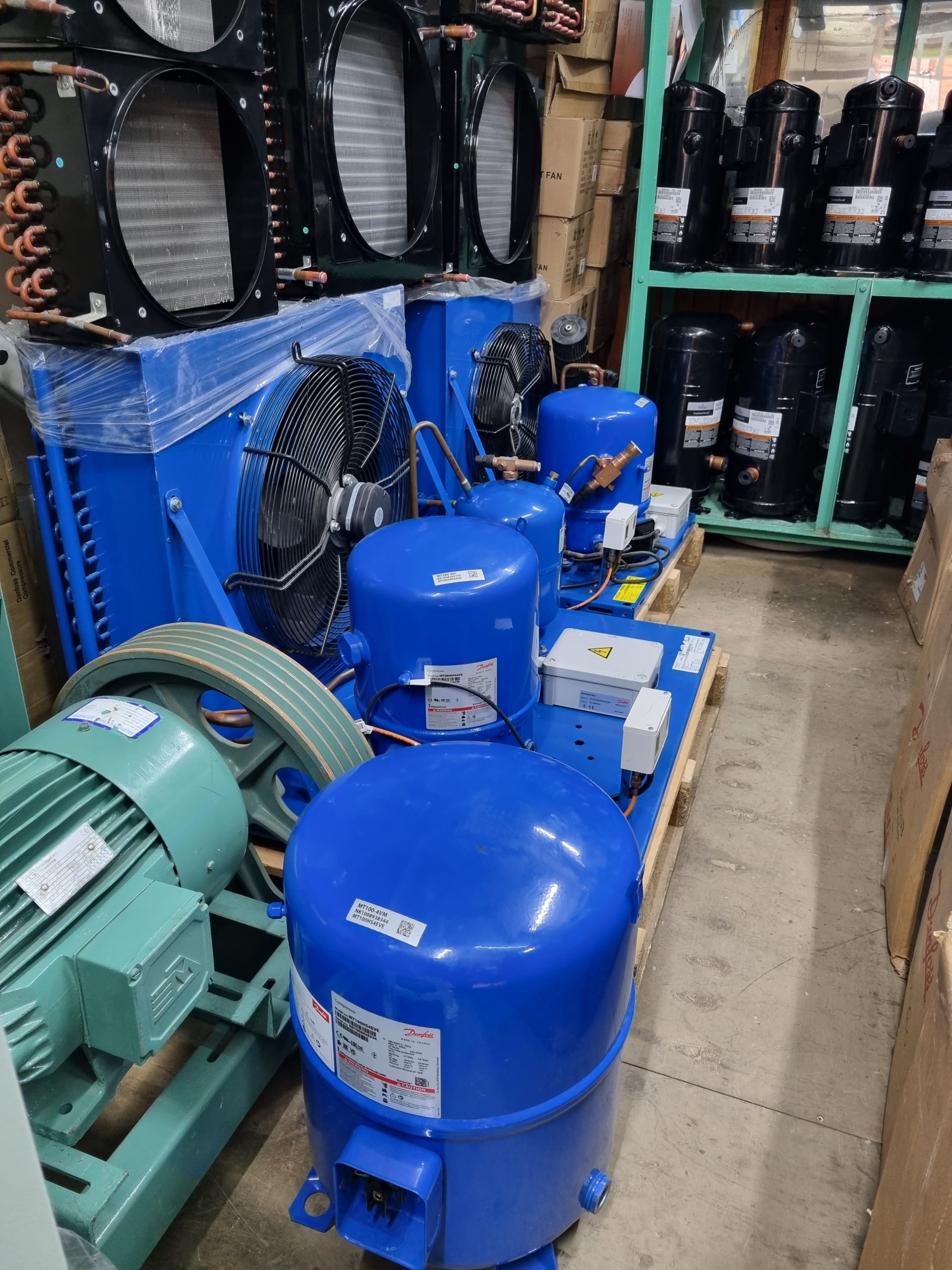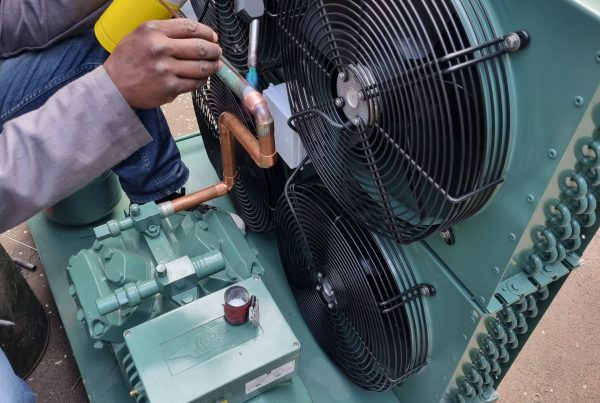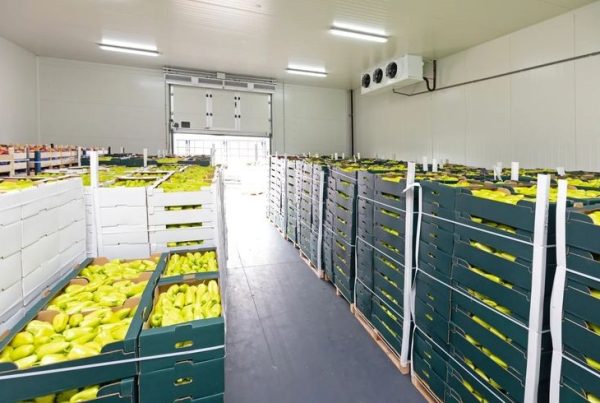Refrigeration Compressors and Equipment Kenya: A Comprehensive Guide to Efficient Cooling Solutions
Kenya’s diverse climate and agricultural industry demand effective refrigeration solutions to preserve perishable goods, maintain ideal storage conditions, and ensure food safety. Refrigeration compressors and equipment play a crucial role in achieving these goals, offering efficient cooling solutions for a wide range of applications.
In this guide, we’ll explore different types of refrigeration compressors and equipment available in Kenya, their key features, benefits, maintenance requirements, and where to find reputable suppliers. Whether you’re in the hospitality sector, a food retailer, or involved in any industry that relies on refrigeration, this article will provide valuable insights to help you make informed decisions and maximize the efficiency of your cooling system.
Refrigeration Compressors and Equipment Kenya: Enhancing Cooling Systems
Refrigeration compressors and equipment are vital components of cooling systems that help regulate temperature and remove heat from an enclosed space. They are designed to compress and circulate refrigerant, facilitating the heat exchange process necessary for cooling. Let’s explore the different types of refrigeration compressors and equipment commonly used in Kenya.
1. Reciprocating Compressors: Powerful Cooling for Diverse Applications
Reciprocating compressors are widely used in various cooling applications, including residential, commercial, and industrial settings. These compressors operate on the principle of piston-driven compression, providing powerful cooling capabilities. With their ability to handle different refrigerants and adapt to varying loads, reciprocating compressors are a popular choice for many businesses in Kenya.
2. Scroll Compressors: Energy-Efficient Cooling Solutions
Scroll compressors are known for their energy efficiency and quiet operation. These compressors use two interlocking spiral-shaped scrolls to compress refrigerant, resulting in enhanced cooling performance and reduced energy consumption. Scroll compressors are ideal for applications that require precise temperature control and low noise levels, making them suitable for hospitality, medical, and research facilities in Kenya.
3. Centrifugal Compressors: High-Performance Cooling for Large-Scale Applications
Centrifugal compressors are the go-to choice for industrial-scale cooling needs. These compressors utilize centrifugal force to compress refrigerant, delivering high-performance cooling solutions for large spaces. With their ability to handle substantial cooling loads, centrifugal compressors are commonly used in cold storage facilities, food processing plants, and manufacturing industries across Kenya.
4. Screw Compressors: Robust and Reliable Cooling Systems
Screw compressors are renowned for their durability and reliability. These compressors feature two interlocking helical rotors that compress refrigerant, offering efficient and continuous cooling performance. Screw compressors are often favored in heavy-duty applications such as supermarkets, warehouses, and data centers, where consistent and reliable cooling is essential.
Maintenance Tips for Optimal Cooling Efficiency
Regular maintenance is crucial for ensuring the optimal performance and longevity of refrigeration compressors and equipment. Here are some maintenance tips to help you keep your cooling system running smoothly:
- Schedule Routine Inspections: Regularly inspect your compressors, refrigerant lines, and associated equipment for any signs of leaks, damage, or wear. Addressing potential issues early on can prevent major breakdowns and costly repairs.
- Clean and Replace Filters: Clogged filters can restrict airflow and reduce cooling efficiency. Clean or replace air filters as recommended by the manufacturer to maintain proper airflow and prevent debris buildup.
- Monitor Refrigerant Levels: Check refrigerant levels regularly to ensure they are within the recommended range. Low refrigerant levels can lead to inadequate cooling and increased energy consumption.
- Lubrication: Follow the manufacturer’s guidelines for lubrication schedules. Proper lubrication helps reduce friction and extends the lifespan of your compressors.
- Condenser and Evaporator Coil Maintenance: Keep the condenser and evaporator coils clean and free from dirt, dust, and debris. Dirty coils can hamper heat exchange, resulting in reduced cooling efficiency.
- Temperature and Pressure Monitoring: Regularly monitor temperature and pressure readings to identify any deviations from the desired range. Anomalies in temperature or pressure may indicate underlying issues that require attention.
Frequently Asked Questions (FAQs)
- Q: Where can I find reputable suppliers of refrigeration compressors and equipment in Kenya? A: There are several reputable suppliers of refrigeration compressors and equipment in Kenya, The best being The Cold Room Kahuna.
- Q: What factors should I consider when choosing a refrigeration compressor for my business? A: When selecting a refrigeration compressor, consider factors such as cooling capacity, energy efficiency, noise levels, maintenance requirements, and compatibility with your existing cooling system.
- Q: How often should I schedule maintenance for my refrigeration compressors and equipment? A: It’s recommended to schedule maintenance at least twice a year. However, the frequency may vary depending on the type of compressor, usage patterns, and environmental conditions.
- Q: What are the signs that my refrigeration compressor needs repair or replacement? A: Common signs of compressor issues include unusual noises, reduced cooling performance, frequent cycling, refrigerant leaks, and increased energy consumption. If you notice any of these signs, it’s advisable to seek professional assistance.
- Q: Can I retrofit my existing cooling system with a different type of refrigeration compressor? A: Retrofitting depends on various factors, including the compatibility of the new compressor with your existing system, the scope of modifications required, and the expertise of your HVAC technician. Consult with a professional to assess the feasibility of retrofitting.
- Q: Are there any eco-friendly refrigeration compressor options available? A: Yes, there are eco-friendly refrigeration compressor options available, such as those using natural refrigerants like hydrofluoroolefins (HFOs) or carbon dioxide (CO2). These alternatives help reduce environmental impact and comply with sustainability regulations.
Conclusion: Optimize Your Cooling System with Refrigeration Compressors and Equipment Kenya
Investing in high-quality refrigeration compressors and equipment is essential for businesses in Kenya that rely on efficient cooling systems. By choosing the right type of compressor, conducting regular maintenance, and working with reputable suppliers, you can optimize your cooling system’s performance, reduce energy consumption, and ensure the freshness and safety of your perishable goods.
Whether you need refrigeration compressors for your hotel, supermarket, or manufacturing facility, Kenya offers a wide range of options to suit your specific requirements. Embrace the power of efficient cooling solutions with refrigeration compressors and equipment Kenya, and keep your products fresh and customers satisfied.





